
The popularity of eggs is impossible to deny. It’s easy to see why too, given that they’re easy to find, nutritious, and an excellent source of protein. They’re also versatile and fast to prepare. Seriously, there’s an almost endless number of ways to use eggs.
While most of us already use eggs regularly, the ways of preserving them can be much less familiar. There are multiple options to choose from and freezing is one of the easiest.
There are plenty of reasons for learning how to freeze eggs. The first is to make sure you always have a steady supply. After all, egg shortages do happen and even the egg supply from your own hens can vary over time.
Freezing eggs is perfect when you have an excess, like when your hens are laying well or when you get an exceptional deal at the store.
Plus, you can freeze egg whites and yolks separately or together. This is perfect for cooking, as some recipes call for just egg whites or egg yolks. Others may use more yolks than whites (or vice versa). Freezing the excess is much better than throwing it out. You can even portion your eggs before you freeze them, which makes them easy to use later.
The process for freezing eggs is as simple as breaking them out of their shell, blending them, and freezing them in an appropriate container. You’ll often add some salt or sugar to prevent the egg yolk from becoming coagulated.
Notably, you shouldn’t ever be freezing eggs in their shell (despite what some TikTok videos would have you believe). Doing so messes with the texture of your egg and might even be dangerous. We’ll explain more about this issue shortly.
How To Freeze Eggs
We’ve given you the basic principles for freezing eggs already – simply break them from their shells, blend them, and freeze the resulting mixture. However, the exact steps vary depending on the part of the egg you’re freezing and what you plan to do with them later.
Steps To Take

Freezing Whole Eggs
When freezing egg whites and yolks together, you should first break them out of the shell. But, that’s not the end of it. You also need to gently blend the yolks and whites together to create a fairly even mix.
Technically speaking, you could freeze eggs without any mixing at all. Doing so would be safe, just not appealing, as frozen yolks develop a pretty weird texture.
Many people freeze the egg white and yolk mixture as it is, while others add a little sugar or salt. The sugar or salt helps maintain the egg’s consistency, but it isn’t essential when you’re freezing whites and yolks together.
Freezing Egg Whites
To freeze egg whites, you first need to separate them from the whites. Then, you can simply pour them into your desired container and freeze them.
Freezing Egg Yolks
Egg yolks are trickier, as they can develop a strange texture when they’re frozen. They often become thick and syrup-like. The best way around this is to blend the egg yolks with a little salt, sugar, or corn syrup. This extra ingredient prevents the texture change and means your egg yolks are still enjoyable.
Whether you use salt or sugar depends on how you plan to use your eggs. Sugar is the way to go for sweet recipes, while salt works best for savory ones.
You’re only adding a little salt or sugar, perhaps 1/4 to 1/2 a teaspoon, so the addition shouldn’t change your recipe’s flavor too much. If you’re worried, simply decrease the amount of salt or sugar in your recipe by the appropriate amount.
Freezing Hard Boiled Eggs
Now we get to hard boiled eggs. Freezing these isn’t as simple as throwing the eggs in the freezer.
I mean… you could freeze the eggs this way, but the white parts become extremely rubbery. You need to separate the egg yolks to get a good outcome. These yolks can then be frozen as-is. You can also mash the egg yolks before freezing them.
The texture will still change, so you can’t use thawed egg yolks in all the same ways as fresh ones. Still, they’re excellent in many situations, including when making mayonnaise, devilled eggs, or carbonara sauce.
Freezing Egg Dishes
Meals made with cooked eggs can be frozen as well. Here, it’s best to cool the dish before sticking it in the freezer. This reduces the risk of bacterial growth.
You’ll generally see some texture change from freezing, thawing, and reheating egg-based dishes. What this looks like depends on the recipe and how you thaw it. For example, egg muffins and quiches are often frozen and thaw well.
On the other hand, freezing and thawing scrambled eggs doesn’t work nearly as well. While you can still do so, the texture change makes your eggs much less appealing.
In most cases, you’ll get the best texture by thawing the egg dishes slowly. This normally means doing so in the fridge overnight, rather than on the counter or using any form of heat.
Why Can’t You Freeze Eggs In Their Shells?

Freezing eggs in their shells seems like it should be safe. You’ll even see the idea promoted on some recipe blogs and in a few viral TikTok videos. Part of the appeal is that if you freeze a whole egg, slice it and fry it, you get cute treats that look like mini fried eggs.
The big issue here is food safety (freezing eggs in their shells leads to weird textures too, that’s less relevant if you’re slicing and frying them, but a problem if you’re using them any other way). Notably, the liquid inside your egg expands as it freezes, creating cracks. These cracks can be large, small, or even microscopic.
The cracks are notable as they allow microbes to enter your eggs, potentially making you sick. Remember, the freezer doesn’t kill microbes, it just stops them from multiplying.
Why is this worse than cracking eggs from their shells and freezing the interior? Presumably because the microbes are often present on the shell of the egg. As such, prolonged exposure to a cracked egg could easily lead to food poisoning.
Some people freeze eggs like this regularly with no issue at all, perhaps because they have strong immune systems. Even so, it’s a silly risk to take, given that eggs frozen in their shells don’t taste that good anyway.
Even if you’re willing to take the risk for yourself, it’s best to avoid giving such eggs to kids, as their immune system is not always as strong as an adult’s.
Tips For Freezing Eggs

Make Sure They’re Fresh
First, make sure the eggs you freeze are fresh. This is easy if you have your own hens, as you’ll know the date they were laid.
Things are a little trickier with eggs from the store, as they may have been sitting in the store for weeks. The simplest approach is a float test, where you fill a bowl with cold water and place the eggs gently in it.
Eggs that float to the surface of the water are old and shouldn’t be frozen. Such eggs are still sometimes safe to eat. You can crack them open and then watch for ‘off’ colors or scents. Still, even if the egg is safe, it’s much better to freeze fresh eggs instead.
If the eggs don’t float to the surface, you should be able to freeze them without an issue. It’s important to get this right, as it is difficult to work out an egg’s safety after it has been frozen.
Label Them Well
Your eggs should be labeled with the date of freezing. This makes it easy to use them before any deterioration in quality.
Also, be sure to write the number of eggs on the label, as you won’t necessarily remember the number in a few months time. If you added salt or sugar you should include this information on the label as well.
Consider Straining The Eggs
Straining your eggs before freezing them isn’t an essential step. However, it can help to give you a more consistent texture.
Doing so also removes any eggshell fragments that would otherwise get left in the mix. This is great if you often end up leaving a little eggshell in with your egg.
Blend Your Eggs Gently

As we discussed earlier, you’ll often be blending your eggs before freezing them. However, you should do so gently, as you don’t want to introduce too much air.
Think About The Container Carefully
You will most often freeze your eggs in small containers. After all, a mass of 6 or 12 frozen eggs wouldn’t be very practical.
Some people turn to ice cube trays. Here, you pour the egg mixture into the ice cube slots, then once the egg is fully frozen, you can transfer it to a bag and label it accordingly.
The ice cube approach is best if you’re freezing egg whites and yolks separately, as you can’t fit an entire egg in a regular ice cube shape. That said, you can experiment with other sizes, including jumbo ice cube trays.
Muffin trays are a viable option as well. These have similar benefits, but are large enough for a whole egg at a time.
The material of your container matters as well. It’s often challenging to get frozen eggs out of a regular ice cube tray, while a silicone tray is much easier. Individual silicone muffin cups are also an easy choice.
How To Use Frozen Eggs
Frozen eggs are trickier than ingredients like tomatoes or bananas, as they need to be fully thawed and then cooked before you can use them safely.
Using the eggs when they’re still frozen or not cooking them thoroughly are both risky approaches, ones that can easily lead to food poisoning. Be especially careful if the eggs are being served to anyone with a compromised immune system, as the risks and consequences of food poisoning are worse for such people.
Because you’re cooking the eggs, any texture differences between fresh and thawed eggs shouldn’t be noticeable. Even so, your meal might not taste quite the same. You’ll need to experiment to determine which dishes work well with thawed eggs and which don’t.
Thawing The Eggs
The easiest way to thaw eggs is to place them in the fridge. They’ll thaw the most slowly here, which gives you the best texture and minimizes risk.
If you need them sooner, try running cold water over the container the eggs are stored in. Cold water is essential here, as hot water risks cooking the eggs before they’re fully thawed.
Don’t thaw the eggs on your countertop. While this works, it also places the eggs at a concerning temperature, which can lead to microbes multiplying and an increased risk of food poisoning. The microwave is another poor choice, as you may partly cook your eggs in the process.
Other Ways To Preserve Eggs

Dehydrating Eggs
Dehydrating is a common method of preserving food, including eggs and is most easily achieved using a dehydrator. However, whether you should do so is heavily debated.
The biggest problem is raw eggs, especially if you don’t know their origins and history before they reached you. While dehydrators heat food, they do so by a cycle heat process rather than keeping the heat consistent. This can mean your eggs are at risky temperatures for too long.
Dehydrating cooked eggs is a safer option (although there is still some risk of food poisoning). However, these aren’t as versatile as raw eggs and mightn’t work for all the same recipes.
Freeze Drying
If you own a freezer dryer, then freeze drying eggs is a possibility as well. You can freeze dry raw or cooked eggs. Both types quickly reconstitute with a little water.
However, there are some food safety considerations here too. There’s been little testing into whether raw eggs can be safely freeze dried, so you should be very cautious. If you’re going to freeze dry eggs anyway, make sure the eggs come from a reputable source and have been carefully handled.
Water Glassing
Water glassing is a traditional way of preserving farm fresh eggs. It involves immersing the eggs in a solution that helps to make them last for much longer. Sodium silicate was once used, although these days, people are turning to a solution of pickling lime and filtered water instead.
The approach is incredibly simple. You just need to make the solution, submerge the eggs in it, then keep them in the liquid in a cool and dry place. The eggs may then last a year or perhaps even longer without spoiling.
This approach has some limitations. First, it only works with very fresh eggs, not ones from the grocery store.
The eggs should also be clean and unwashed. Even wiping eggs removes some of their natural protective bloom, reducing their lifespan. To get around the issue, you might select the cleanest eggs from each day to preserve, then use the rest as normal.
Pickled Eggs
Pickled eggs can last three to four months in the fridge, if you prepare them well. While this isn’t as long as some techniques, it’s long enough to be helpful.
Pickled eggs aren’t difficult to prepare either. You’re basically just hard boiling eggs and soaking them in a marinade that consists of vinegar, water, sugar, salt, and spices. Some people even add beet juice to give their eggs an interesting deep red color.
Frequently Asked Questions
How Long Will Frozen Eggs Last?
Frozen eggs should be safe to eat for up to a year. However, like most frozen food, the quality decreases over time. It’s generally best to use your eggs within three or four months. They’ll start to lose quality after that point.
Can You Freeze Duck Eggs?
The principles we’ve discussed today aren’t limited to eggs from chickens. You can freeze other types of eggs, including duck eggs, this way. The practices are the same regardless of the type of egg you choose.
Are Eggs Safe If Accidently Frozen?
Probably not, as accidentally frozen eggs will almost certainly have been frozen in their shells. Freezing eggs in their shells tends to be unsafe, as the shells can crack, which allows microbes to enter. The texture of the egg won’t be great either.
Do Eggs Taste The Same After Freezing?
Freezing doesn’t change the flavor of your eggs much at all. The main taste difference comes from adding salt or sugar to the eggs. However, you can easily adjust your recipe to compensate for this.

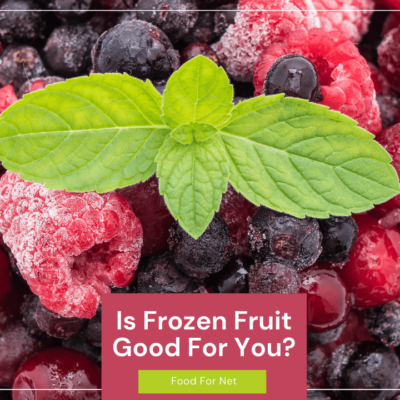
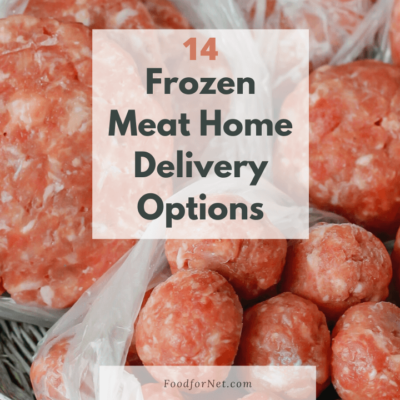


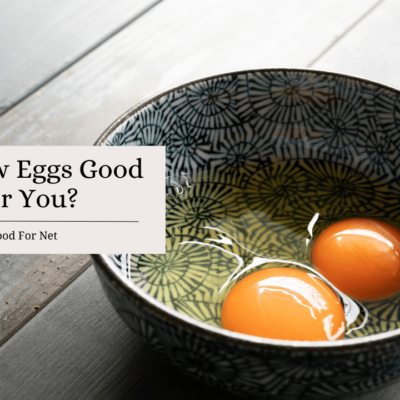


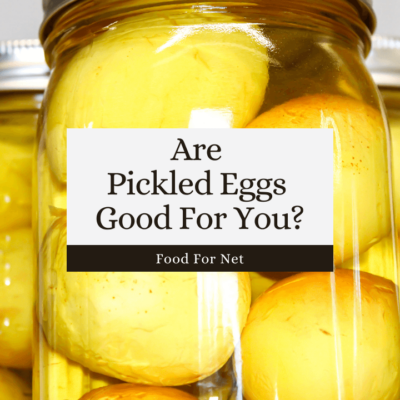


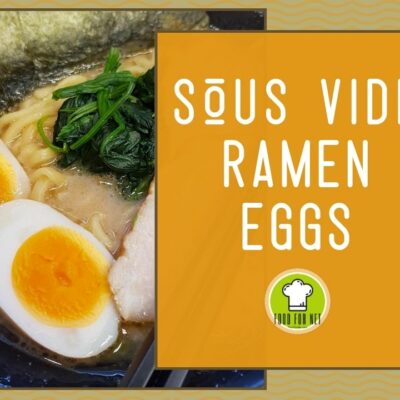
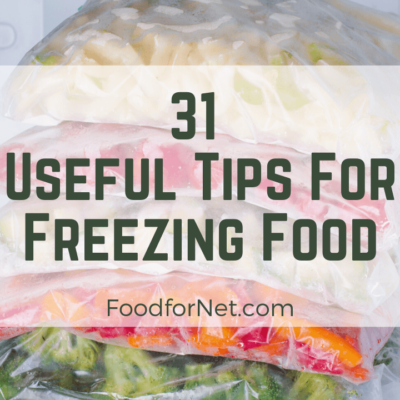
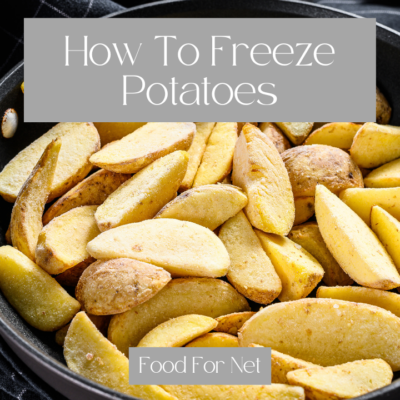
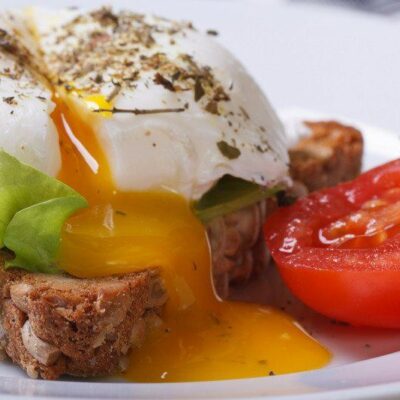


 18 Substitutes For Cornstarch
18 Substitutes For Cornstarch